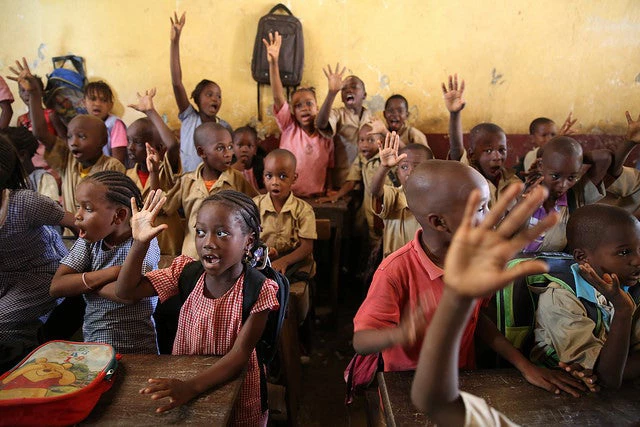Socio-emotional skills are the new hot topic in education. Governments, ministers of education, policymakers, education experts, psychologists, economists, international organizations, and others have been captivated by these skills and their contribution to students’ academic and life outcomes. The goal seems clear, but the way to achieve results is not so obvious. Most of the literature focuses on the impact of socio-emotional skills on different outcomes, while much less illuminates the specific mechanisms through which teachers can boost students’ socio-emotional development.
Why are socio-emotional skills so important? (for learning and for life!)
Socio-emotional skills, also known as non-cognitive skills, represent the set of behaviors, attitudes, and personality traits that help individuals “to understand and manage emotions, to set and achieve positive goals, to feel and show empathy for others, to establish and maintain positive relationships, and to make responsible decisions.” In other words, they “determine how people do things.” Some examples of these skills are grit, self-control, self-management, effective communication, prosocial behavior, among others.
Since emotions are an intrinsic component of learning and life, acquiring and developing socio-emotional skills, particularly at early ages, is associated with improved academic achievement, educational attainment, employability, income, and reduced risky behaviors. Thus, developing socio-emotional skills is not only a result of learning, but also a way to enhance learning.
What is the role of teachers in this process?
We have all had teachers that affected our lives, usually for better and occasionally for worse. If we reflect carefully, the reason why these teachers had such an influence had to do with the way they interacted with us, the way they made us feel about learning and about our self-esteem.
In school, students observe, identify, learn, experience, and replicate behaviors, social norms, attitudes, and socio-emotional skills. Teachers constitute a reference point for students in the classroom and can influence their socio-emotional development through the way that they model socio-emotional skills, promote teacher-student interaction, manage and organize the classroom, among other practices – whether intentional or not. Socio-emotionally competent teachers are more likely to know how to manage their emotions, to carry out effective classroom management, to set behavioral guidelines, to engage in more supportive and encouraging teacher-student interactions, and to therefore foster their students’ socio-emotional development.
What positive practices can teachers implement to cultivate students’ socio-emotional skills?
Here are six research-supported practices that teachers can use. (They aren’t the only ones!)
- Teaching socio-emotional skills explicitly: some interventions consist in implementing a “plan-do-review” sequence (i.e. planning, executing and reviewing a task with teachers and other students), as the Perry Preschool Project did, or using specific materials, as Mexico’s Construye T Program.
- Using socio-emotional language: teachers can motivate students by using language that encourages effort and work, provides positive affirmation, or helps them to compare a desired future with its present reality (i.e. mental contrasting).
- Improving teacher-student interaction: it’s important that teachers demonstrate that they care about their students, that they try to be fair, and that they provide warmth and support.
- Promoting cooperative learning: more than having students work in groups, teachers can encourage them to actively work together in a meaningful way around content.
- Setting positive expectations and labeling: labeling student performance more positively can help to increase their self-confidence and shape their schooling decisions. In the U.S., the label “advanced” versus “proficient” on a state math exam significantly increased college attendance.
- Improving classroom management: effective classroom management contributes to increased instructional self-efficacy and classroom organization, greater student participation, fewer disruptive behaviors that interfere with learning, joyful and safe classrooms, and a recognition that how students learn is as important as what they learn.
What type of practices are best avoided?
As counterintuitive as it may sound, teachers can have a detrimental influence on students’ socio-emotional development, even if unintentional.
Teaching can be, undoubtedly, one of the most stressful occupations due to the multiple emotional, pedagogical, managerial, multitasking challenges it entails. Teacher stress and teacher burnout are negatively associated with the quality of the classroom-learning environment and therefore with student performance, but also with the quality of the teacher-child relationship and school engagement levels. Beyond their own stress, teachers’ inability to cope with stressful situations in the classroom, or inactive behavior, may affect their capacity to manage student misbehavior.
Teacher behavior can also have a negative influence on students’ socio-emotional development. For example, if students or mentees perceive that their mentors will always bail them out from trouble, even well-intended mentoring can lower the perception of the cost of engaging in risky behaviors and therefore increase the incidence of these conducts. Teachers’ (low) expectations about students’ performance can also change students’ perception of themselves and their behaviors according to the labels or expectations inflicted on them. Another detrimental teacher behavior that might negatively affect students’ socio-emotional skills is teacher absenteeism/tardiness, although the evidence is more limited.
So, what can we actually do?
For teachers to be able to model and teach socio-emotional skills, they themselves need to live and embody them. But this doesn’t come to all teachers naturally. When teachers lack socio-emotional skills, access to training, resources, creativity, or techniques to foster their students’ socio-emotional development, their behaviors and actions can produce negative learning outcomes. Existing evidence – which is still limited – suggests that training teachers to develop these skills can increase students’ socio-emotional (and academic) learning.
For that reason, it is important that education systems and schools encourage (and train) teachers to actively put in practice techniques and attitudes that contribute to students’ socio-emotional development, either through specific socio-emotional learning interventions or indirectly in the classroom.
Some countries – Bhutan, Colombia, Mexico, Peru – have already started…



Join the Conversation